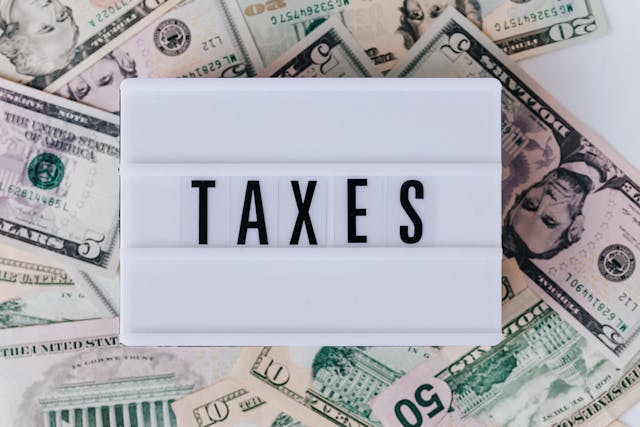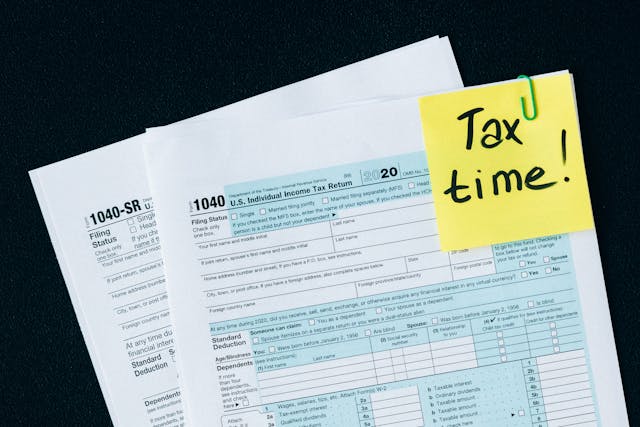Understanding Taxes: What Small Business Owners Need to Know
Taxes are an inevitable part of owning a small business, but understanding them doesn’t have to be overwhelming. As a small business owner, being informed about tax obligations is essential for compliance, avoiding penalties, and ensuring your business’s financial health. From federal taxes to state-specific requirements, it’s crucial to stay on top of your tax responsibilities.
In this article, we’ll break down the key tax topics that small business owners need to know, including tax types, deductions, filing tips, and common mistakes to avoid.

Types of Taxes Small Business Owners Need to Know
Navigating the Different Tax Categories
When it comes to taxes, small business owners need to be familiar with several key types:
- Income Tax: All businesses must pay income tax based on their net profits. This applies whether your business is a sole proprietorship, partnership, LLC, or corporation. The IRS taxes the income from your business, and you’ll need to file annually to report your earnings.
- Self-Employment Tax: If you're self-employed, you are responsible for paying self-employment taxes, which cover Social Security and Medicare. This tax rate is currently 15.3%, but it’s broken down into two parts: 12.4% for Social Security and 2.9% for Medicare. Keep in mind that the Social Security portion only applies to income up to a certain threshold, which changes each year.
- Payroll Taxes: If you have employees, you'll need to withhold federal income tax, Social Security, and Medicare taxes from their wages. Additionally, you’re responsible for matching the employee’s Social Security and Medicare contributions. Payroll taxes also include federal and state unemployment taxes.
- Sales Tax: Many businesses that sell goods or services are required to collect sales tax from customers. The rules and rates vary by state and local jurisdiction, so it’s important to know your state’s requirements. Not all products and services are taxable, so be sure to check which items are subject to sales tax in your area.
- Excise Taxes: If your business sells certain products, like alcohol, tobacco, or fuel, you may need to pay excise taxes. These taxes are imposed at the federal or state level and are typically included in the price of the product.
Common Tax Deductions for Small Businesses
Reducing Your Taxable Income
One of the benefits of owning a small business is that you can deduct many of your business-related expenses from your taxable income. This can significantly reduce the amount of taxes you owe. Here are some common deductions:
- Business Expenses: These include the costs of running your business, such as rent, utilities, office supplies, insurance, and marketing. You can deduct these expenses as long as they are necessary and ordinary for your business operations.
- Home Office Deduction: If you work from home, you may qualify for the home office deduction. You can deduct a portion of your rent or mortgage, utilities, and internet costs based on the square footage of your office. The IRS offers a simplified method for calculating this deduction, which is based on a per-square-foot rate.
- Employee Salaries and Benefits: The wages and benefits you pay your employees are generally deductible. This includes salaries, bonuses, health insurance, and retirement contributions. Even if you're paying yourself as the owner, you can deduct your wages if your business is structured as an LLC or corporation.
- Depreciation: If you purchase significant assets like equipment, vehicles, or property for your business, you can deduct the depreciation of those items over time. This spreads the cost of the asset over its useful life, allowing you to reduce your taxable income each year.
- Travel and Meals: Business travel expenses such as airfare, lodging, and transportation are tax-deductible, provided they are for business purposes. You can also deduct 50% of the cost of meals while traveling or entertaining clients, though there are certain rules on how this is documented.
Filing Your Taxes: Tips for Small Business Owners
Staying Organized and Compliant
Filing taxes can feel daunting, but being organized throughout the year will make the process smoother. Here are some tips to help you stay on track:
- Keep Detailed Records: Maintain accurate records of all your business transactions, including income, expenses, receipts, and invoices. This will help you track your deductible expenses and ensure that your tax return is accurate. Consider using accounting software to keep everything organized.
- Understand Your Business Structure: Your business structure—sole proprietorship, partnership, LLC, or corporation—will affect how you file taxes. For example, sole proprietors and partnerships report their income on their personal tax returns, while corporations file separate tax returns. Make sure you understand which forms apply to your business.
- Pay Estimated Taxes: As a small business owner, you may be required to pay estimated quarterly taxes to the IRS, especially if you expect to owe $1,000 or more when you file your annual return. These payments are due four times a year, so it’s essential to budget and pay them on time to avoid penalties.
- Hire a Tax Professional: If your tax situation is complicated, consider hiring a tax professional who specializes in small businesses. They can help you navigate tax laws, maximize deductions, and ensure compliance with all tax regulations.
- File on Time: Late filing or payment of taxes can result in penalties and interest. Mark your calendar for important deadlines, and if you’re unable to meet them, consider filing for an extension to avoid last-minute stress.

Common Tax Mistakes to Avoid
Preventing Costly Errors
Filing taxes can be tricky, and many small business owners make mistakes that end up costing them. Here are some common errors to avoid:
- Mixing Personal and Business Expenses: Keep separate accounts for personal and business expenses. Mixing them can make it difficult to track deductible expenses and could raise red flags with the IRS. Use a business credit card or bank account to make sure everything stays organized.
- Underreporting Income: It’s tempting to leave out some income to reduce your tax bill, but this can lead to serious consequences if the IRS finds discrepancies. Report all sources of income to avoid penalties.
- Forgetting About Deductions: Small business owners often overlook certain deductions, such as home office expenses or business mileage. Be sure to track all eligible expenses throughout the year so you can maximize your deductions and reduce your taxable income.
- Missing Deadlines: Failing to file your taxes or make timely payments can result in significant penalties and interest. Set reminders for key deadlines, and file on time to avoid unnecessary fees.
Conclusion: Staying Ahead of Your Tax Responsibilities
Understanding taxes is a crucial aspect of running a small business. By knowing the different types of taxes you’re responsible for, keeping track of deductions, and filing on time, you can avoid penalties and keep your business running smoothly. Staying organized and seeking professional advice when necessary will help you navigate the complexities of taxes and ensure that you’re in compliance with the law.
Remember, taxes don’t have to be stressful if you plan ahead, stay informed, and take the time to understand your obligations. With the right approach, taxes can become just another part of running a successful small business.












